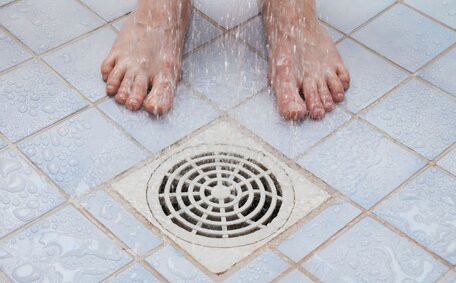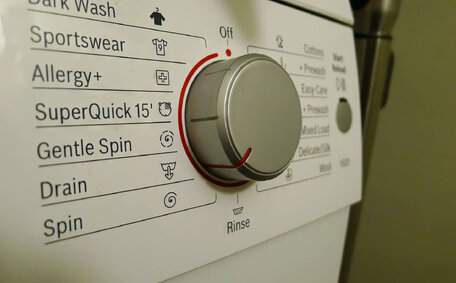
Baking Soda & Vinegar for Cleaning
Using baking soda & vinegar separately for cleaning is very effective; but mixing them dilutes their cleaning power. Learn how to use them properly.
Read MoreGas leaks from heating systems or other sources pose significant risks. Undetected, they can build up to dangerous levels, causing serious health hazards and potentially life-threatening situations.
Gas leaks in the home can involve natural gas, LPG, and other fuels. It’s vital that property owners, tenants, and employers understand the hazards, recognise the signs, and take immediate action if a leak is suspected.
As a reliable energy source, natural gas powers heaters, water heaters, and stoves. Its popularity in households and businesses, especially for LPG in remote areas, comes with a caveat; it’s colourless and odourless. Thus, utility companies add a rotten egg scent to aid leak detection.
Natural gas is delivered via a comprehensive underground network to maintain your gas line and ensure your meter receives a steady supply into residences and establishments.
One of the most hazardous health effects from gas leaks is carbon monoxide (CO) poisoning, produced by incomplete combustion in unflued gas appliances. CO at high levels can be lethal, causing immediate unconsciousness or death. Chronic exposure to even low levels may lead to heart disease and neurological impairments. Additionally, raw gas leaks reduce breathable oxygen, posing asphyxiation risks.
Due to their severe health repercussions and environmental impact, it’s imperative to respond appropriately to gas leaks. Understanding the signs and taking preventative actions are key to mitigating these substantial risks.
Preventative measures include professional installation and maintenance of gas appliances, alertness to leak indicators such as unusual smells, not dismissing symptoms such as dizziness, and promptly contacting emergency services if a leak is suspected.
Natural gas leaks, including LPG or other fuels, can seriously affect health. Symptoms vary with gas type, concentration, duration of exposure, and other factors. Acute, high-level exposure and chronic exposure to gas leaks are extremely hazardous to health.
Acute exposure: High concentrations of leaking gas can cause rapid loss of consciousness, coma, and even death. Acute exposure: High concentrations of leaking gas can cause rapid loss of consciousness, coma, and even death.
These fuels displace oxygen in the air we breathe, resulting in quick asphyxiation. These fuels displace oxygen in the air we breathe, resulting in quick asphyxiation. Carbon monoxide poisoning, one of the hazardous combustion products, presents gas leak symptoms like dizziness, weakness, nausea, headache, and confusion. It can be fatal in enclosed spaces.
Longer-term exposure: Prolonged lower exposures to gas leaks are also concerning. Longer-term exposure: Prolonged lower exposures to gas leaks are also concerning. There are also mental health implications with neurological and behavioural effects, such as vision problems and poorer coordination, which can be symptoms gas leak that should not be ignored. Indoor gas leaks compromise indoor air quality and contribute to air pollution by releasing harmful air pollutants, intensifying public health concerns.
Long term, more than just lung irritation and breathing difficulties can result from prolonged gas exposure. Children face greater harm, with risks to neurological development from common conditions like unsafe gas stoves and other appliances.
Never ignore signs of gas leaks, including strange appliance behavior, peculiar odors, or pilot lights that repeatedly go out.
Installing carbon monoxide detectors is crucial, especially with flued gas heaters. Regular inspections of gas appliances and immediate repair of leaks are necessary to avoid health risks associated with gas exposure.
Carbon monoxide (CO) poisoning is an acute danger when gas burns incompletely. CO emanating from malfunctioning or improperly vented furnaces, water heaters, stoves, and generators can quickly become life-threatening.
CO itself is colourless, odourless, and tasteless, so leaks do not have any sort of smell that might alert people to the risk of gas poisoning. Without detecting levels, carbon monoxide can only rapidly lead to loss of consciousness, coma, and death.
This is why CO poisoning is often called a "silent killer". Even exposure to a low level of carbon monoxide indoors over extended periods can pose considerable health dangers.
When inhaled, there’s no mistaking gas-like carbon monoxide can bind to haemoglobin in the blood, hindering its ability to transport oxygen to vital organs like the heart and brain. As levels build up, symptoms like dizziness, headaches, weakness, chest pain, confusion, vomiting, and seizures can occur. Infants, pregnant women, elderly people, and those with existing health conditions are most vulnerable, and should seek medical advice if your symptoms persist.
Installing CO detectors on every level of your home or business acts as a crucial early warning system against leaks.
If you suspect carbon monoxide is being emitted by your gas appliances, shut them down, go outdoors immediately, and call emergency services.
One of the most immediate dangers of a gas leak is asphyxiation or suffocation due to insufficient oxygen. A lack of oxygen can swiftly become evident, a sign gas leak, when natural gas leaks into enclosed spaces, such as basements or small rooms. Lack of oxygen then leads to breathing difficulties, fatigue, weakness, nausea, confusion, and headache.
In severe cases, gas leaks can cause unconsciousness within moments and, without quick intervention, can lead to irreversible brain damage or death. The most vulnerable include infants, pregnant women, the elderly, and individuals with respiratory conditions.
In case of a suspected gas leak, immediate evacuation is vital. If someone or a pet loses consciousness, emergency services should be contacted without delay.
Installation of carbon monoxide detectors as an early warning system, regular inspection of your gas lines and appliances, and immediate repair of any detected leaks can help prevent the asphyxiation hazard from ever developing.
Beyond immediate dangers like asphyxiation and carbon monoxide poisoning, gas leaks can also lead to other concerning health effects, especially with prolonged or repeated exposure.
Headaches, dizziness, fatigue, and nausea are often recognised as leak symptoms.
Gas leak symptoms often include eye irritation, blisters on the skin, throat soreness, and lung irritation. Respiratory issues such as wheezing and shortness of breath can also arise from inhaling hydrocarbons present in natural gas.
Prolonged exposure to gas leaks may cause neurological symptoms like impaired concentration, memory issues, and mood swings. Severe cases can lead to seizures. This exposure is particularly dangerous for children and pregnant women, as it threatens brain development and growth.
People with pre-existing respiratory conditions like asthma and COPD are more susceptible to complications, highlighting the importance of gas safety. For those with cardiovascular disease, the added strain from gas exposure can worsen heart problems. Overall, Gas leaks should be prevented as even minor exposures can affect your indoor air quality and health, especially in vulnerable populations.
To detect gas leaks quickly is critical to prevent potential health and safety hazards. There are a few key ways to recognise signs of a leak in your home or business:
You can also use technology to detect and monitor for gas leaks:
Trusting your senses and using gas detectors provides the best protection. If a leak is ever suspected, leave the area immediately and call emergency services. Detecting and addressing any leak right away is vital to health and safety.
Being able to recognise the signs of a gas leak is crucial for health and safety. There are several key symptoms to look out for in your home:
If you suspect a gas leak in your home, evacuate immediately and contact the gas company or emergency services. Do not operate electrical devices, which could ignite the gas. Getting to fresh air quickly is essential for health and safety.
It’s important, if you suspect a gas leak in your home, to act swiftly and accurately to guarantee the safety of all. Here are the steps to take when you suspect a gas leak:
A gas leak can always be a critical emergency that should be addressed immediately. Taking quick action helps minimise health risks and prevent potential disaster. Do not hesitate to call our team if you ever suspect a leak.
Evacuate right away, avoid ignition sources, call emergency services, and let professional gas fitters handle inspection and repairs.
There are several key precautions households should adopt to address a sign of gas leak and ensure safety if it arises:
When gas use is central to a business, they should also have emergency preparedness plans, conduct leak detection inspections, install gas monitors, and clearly mark shut-off valves. Employee safety training is also critical.
Taking preventive measures reduces leak risks. But if one occurs, evacuate immediately, avoid ignition sources, call emergency services, and let professional gas fitters handle repairs. Gas leaks should always be addressed urgently as they can quickly become life-threatening situations if left unresolved.
There are several key steps households should take to help prevent dangerous gas leaks:
Businesses should make sure to conduct leak inspections, install gas monitors and detectors, mark shut-off valves clearly, and train employees on gas safe practices. But if one occurs, evacuate immediately, avoid igniting the gas, and let professional gas fitters handle repairs.
Taking preventative measures greatly reduces leak risks. Gas leaks can quickly escalate into life-threatening emergencies if left unaddressed.
Annual servicing of your gas heater, water heaters, stoves, and other appliances is recommended for optimal performance and safety.
This allows technicians to inspect for concerning issues like corrosion, faulty parts, and improper venting that can lead to hazardous leaks if left unaddressed. Having your gas appliances and lines periodically checked by a licensed plumber is vital in preventing dangerous gas leaks.
Here at Lilyfield Plumbing, we ensure thorough servicing and maintenance checks for gas appliances to detect any faulty gas components, even when issues present at low concentrations, carried out by fully licenced technicians. Regular upkeep greatly reduces the risks of leaks, carbon monoxide buildup, fires, and explosions. Proactive maintenance provides peace of mind that your gas systems are operating safely and reliably.
It also improves the efficiency of your gas systems. Don’t wait for an emergency to get your gas equipment maintained. Schedule annual tune-ups and let our experts handle all required repairs and replacements.
When installing new gas appliances or replacing old, faulty equipment, it is crucial to use qualified professionals like the licenced gas fitters at Lilyfield Plumbing. Attempting DIY installations or repairs on gas systems can be extremely hazardous if not done properly.
For new installations, our gas fitter technicians follow strict safety codes and manufacturer specifications to ensure appliances are set up correctly.
We handle the entire process from planning to completion, including securing necessary permits. Proper ventilation, leak detection, and line sizing are all paramount. We additionally offer reminders on maintenance plans that are energy safe to preserve the new systems’ safe functioning.
It’s essential to safely remove and environmentally dispose of aged or malfunctioning gas appliances during replacement.
Before installing new appliances, it’s important to inspect existing lines for leaks and ensure new equipment is the right size for your home’s needs to maximise efficiency.
Rely on our skilled technicians for flawless installation or replacement of open flued gas appliances. We make the process seamless while keeping your safety the top priority. Don’t take risks by attempting gas work yourself.
Contact Lilyfield Plumbing to ensure professional installations and replacements, securing years of dependable performance.
Using baking soda & vinegar separately for cleaning is very effective; but mixing them dilutes their cleaning power. Learn how to use them properly.
Read MoreBlocked drains are usually caused by buildup of hair, grease, debris and more in your pipes. Fix the problem with professional drain unblocking services to get your drains flowing freely again. Contact us for affordable drain unblocking.
Read MoreWhen you suspect a gas leak or damaged gas line, contact a licensed gas fitter immediately to locate and repair it. A gas line repair involves sealing leaks, replacing corroded or damaged pipes and testing all connections for safety before restoring gas supply.
Read MoreLilyfield, 2040 NSW
We will call back as soon as possible.




